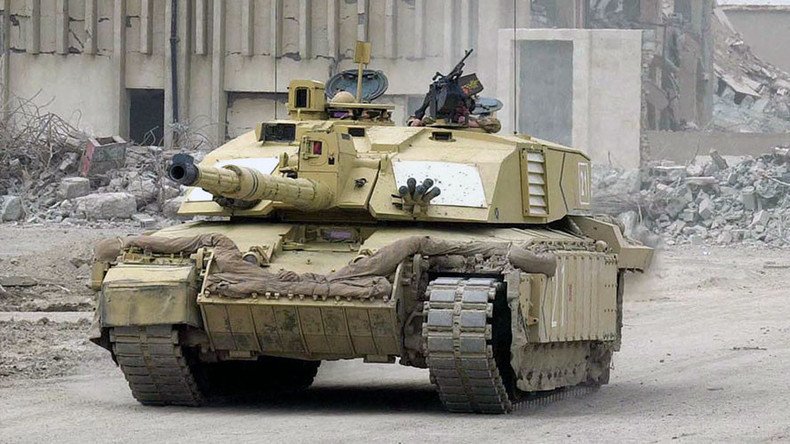Chilcot: UK refusing to help clean up Iraq after raining down radioactive shells

Britain has no intention of cleaning up its deadly radioactive legacy in Iraq or even monitoring the terrifying impact depleted uranium (DU) shells will have on the population in the future, it has been claimed.
Writing in the Ecologist on Tuesday, Doug Weir, who is coordinator of the International Coalition to Ban Uranium Weapons (ICBUW), says that hidden within the Chilcot report is a previously classified military document setting out the UK’s rejection of any duty to cleanse Iraq of DU of unexploded ordnance (UXO).
“In it, the clearance of unexploded ordnance and DU is considered and the Ministry of Defence [MoD] argues that it has: "... no long-term legal responsibility to clean up DU from Iraq" Weir writes.
“Instead it proposes that surface lying fragments of DU only be removed on ‘an opportunity basis’ - i.e. if they come across them in the course of other operations.”
This indicates, according to Weir, that the UK has effectively swerved any obligation to clear up after itself in Iraq.
“In other words, the UK's stance is that chemically toxic and radioactive DU 'ash' from spent munitions is strictly the problem of the country in which the munitions were used - in this case Iraq - and that the UK, which fired the DU shells, has no formal responsibility of cleaning up the mess.”
Our piece @the_ecologist compares #depleteduranium management in #Iraq Vs the US & need for clearance obligations. https://t.co/HsOHKbeaK3
— ICBUW (@ICBUW) July 11, 2016
DU ammunition is used in only two UK weapons systems - the Royal Navy’s PHALANX Close-In Weapon System and in the Charm 3 ammunition fired by the Challenger 2 main battle tank.
However, the route to shirking responsibility may not be as easy as the UK government seems to hope. In October, the UN will meet to debate a sixth resolution on DU weapons. It’s a move which will give succor to the government of Iraq, which in 2014 called for the international community to help clean up DU.
Weir remains hopeful that the UN meeting may be able to encourage governments to take responsibility for the use and fallout of the weapons.
“When the United Nations last discussed DU two years ago, 150 governments recognised the need for states to provide assistance to countries like Iraq,” he wrote.
“This October, our Coalition will add our voice to those of the states affected by DU weapons in calling for an end to the use of DU weapons and for the users to finally accept responsibility for their legacy,” he added.












